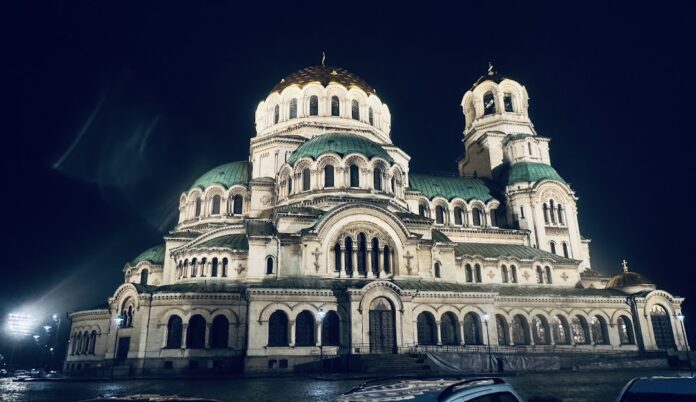There are places in Europe that shout their beauty — and then there’s Bulgaria, a country that whispers. It doesn’t compete for attention; it earns it quietly, through mountain monasteries, rose-scented valleys, and voices that seem to rise straight from the earth.
Founded in 681 AD, Bulgaria is one of Europe’s oldest nations, older than France or Germany, and one of the few that has kept its name across more than thirteen centuries of empires and upheavals. The land has seen Thracians, Romans, Byzantines, and Ottomans — yet it has never lost its rhythm, its language, or its song.
A Culture Rooted in Ritual and Resilience
Bulgaria’s culture feels ancient because much of it truly is. Folk traditions still thread through daily life, especially in rural regions where time moves at a gentler pace. Villagers celebrate Kukeri, a pre-Christian ritual where men don fur and bells to chase away evil spirits, while spring festivals like Lazaruvane fill the air with songs and flower crowns.
In the Valley of Roses, the scent of May and June is unforgettable. This is the world’s heart of rose oil production, where petals are picked before dawn to preserve their fragrance. The Rose Festival in Kazanlak turns the valley into a celebration of color, dance, and pride — a living symbol of how nature and culture intertwine here.
Orthodox Christianity, introduced in the 9th century, remains a spiritual cornerstone. Step into an Orthodox church, and you’ll feel the centuries press close — candles flickering, gold icons glowing, walls alive with saints painted in deep reds and blues. Faith here isn’t loud; it’s steady, resilient, and quietly beautiful.
The Music of Mountains and Memory
Bulgaria’s soul speaks most clearly through its music.
The country’s folk tradition is unlike any other — a sound that seems carved by mountains and molded by time. The harmonies are sharp, open, and powerful; the rhythms can feel unpredictable, dancing between joy and melancholy.
The Bulgarian State Television Female Vocal Choir took these songs to the world stage in the 1970s, earning a Grammy Award and international recognition for their haunting performances. Their voices — raw, layered, and precise — can send chills down your spine.
Even today, you’ll hear folk music everywhere: from weddings in small villages to clubs in Sofia, where DJs sample traditional chants over electronic beats. It’s not nostalgia — it’s evolution. Bulgaria doesn’t leave its roots behind; it remixes them.
A Cuisine that Celebrates Simplicity
Bulgarian food is the essence of freshness — proof that simplicity, done right, can be sublime.
Start with a Shopska salad: ripe tomatoes, cucumbers, roasted peppers, onions, and a snowfall of white brined cheese (sirene). Legend says its colors — red, green, and white — inspired the Bulgarian flag.
Then there’s banitsa, the golden spiral of pastry filled with cheese and eggs, often served warm for breakfast or holidays. During New Year’s, families tuck handwritten fortunes inside — a Bulgarian twist on fortune cookies, centuries old.
And don’t leave without trying Bulgarian yogurt — famed worldwide for its unique bacteria, Lactobacillus bulgaricus. Locals swear by it as the secret to longevity, and science might just agree.
Pair all of that with a glass of rakia, the fiery fruit brandy that fuels toasts, laughter, and long conversations. One sip, and you’ll understand: Bulgaria knows how to make you feel at home.
A Land of Contrasts and Timeless Beauty
Bulgaria’s geography is its greatest storyteller.
To the east, the Black Sea coast stretches for miles, its mix of ancient ruins and modern resorts drawing sunseekers and history lovers alike. In Nessebar, cobblestone streets and medieval churches perch on a rocky peninsula — a UNESCO World Heritage site that feels like an open-air museum.
Head inland, and you’ll find a country of mountains, monasteries, and mystery. The Rila Monastery, founded in the 10th century by St. John of Rila, is the crown jewel of Bulgarian spirituality. Nestled beneath towering peaks, its frescoes burst with color — scenes of angels, saints, and sinners rendered with both faith and artistry.
Further north, Plovdiv stands as one of the oldest continuously inhabited cities in the world — older than Rome or Athens. Its Old Town is a mosaic of eras: Roman amphitheaters, Ottoman houses, and 19th-century mansions, all linked by winding cobblestone lanes. Today, it’s also a cultural hub — full of galleries, music festivals, and creative energy that bridges ancient and modern.
In winter, the ski slopes of Bansko and Borovets buzz with activity. In summer, hikers tackle trails through the Pirin and Rila Mountains, where glacial lakes reflect skies so clear they seem painted on glass.
Why Bulgaria Stays with You
Bulgaria isn’t about checking boxes or chasing landmarks. It’s about the moments in between — a grandmother selling honey by the roadside, a folk band playing at a village square, a quiet sunrise over the Black Sea.
It’s about resilience — a country that has endured invasion, empire, and change, yet never lost its sense of who it is. It’s about contrasts — wild and refined, ancient and modern, humble and proud.
Bulgaria doesn’t need to impress you. It just needs you to slow down long enough to notice it. And when you do, you’ll find something rare: a place where history isn’t frozen — it’s alive, breathing through every song, flavor, and smile.



